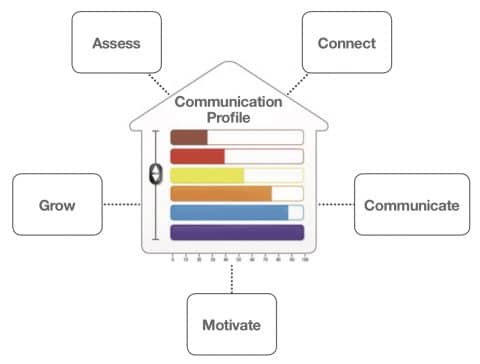
How To Help Different Personality Types Navigate Crisis and Uncertainty
Share viaDifferent personality types navigate crisis differently. Personality exerts tremendous impact on how people take in and process information, how they are motivated to take appropriate action, and how they experience it emotionally. Recognizing this can help leaders craft the most effective response plans to minimize panic and maximize problem-solving.
Here are tips to help different personalities navigate crisis.
Thinkers are natural planners.
They want to know the facts, ratios, risk estimates, and data-maps. They crave control, so they struggle with the uncertainty associated with a rapidly changing landscape. Their value in times of crisis is organizational and planning.
Help Thinkers by:
- Providing up to date, accurate information.
- Giving them as much advance notice as possible for any changes.
- Letting them work on plans and solutions.
- Support them in dealing with the natural feelings associated with loss of control.
Persisters are natural protectors.
They want to know the meaning, purpose and impact of what’s going on. They crave consistency and security, so they struggle with the danger that crisis poses to the people and organizations under their watch. Their value in times of crisis is keeping an eye on the big picture.
Help Persisters by:
- Supporting their need to clarify priorities and big-picture impact.
- Validating their convictions and commitments.
- Telling the truth.
- Supporting them in authentically experiencing the fear associated with uncertainty.
Harmonizers are natural caregivers.
They want to nurture relationships and connections and make sure everyone is okay. They crave emotional connection, so they struggle with the strain that crisis and uncertainty put on relationships, not to mention the pain it causes. Their value in times of crisis is their ability to nurture others.
Help Harmonizers by:
- Telling them you care about them.
- Sharing emotions and offering emotional support.
- Enlisting their support to provide nurture and comfort to those who are suffering.
- Supporting them when they express anger about how crisis and uncertainty affects the people they love.
Rebels are natural funsters.
They want to express themselves freely and engage creatively with the world. They crave unstructured time to be creative, so they struggle with the limitations that crisis can place on their environment. Their value in times of crisis is their ability to keep things from getting too serious and gloomy.
Help Rebels by:
- Supporting their playful and humorous style of dealing with stress.
- Enlisting their creative problem-solving to find novel solutions.
- Avoiding overly-regimented environments when possible
Imaginers are natural dreamers.
They want to reflect and exercise their imaginative capabilities. They crave time and space without interruptions to recharge, so they struggle with the increased social interactions that often accompany rapid change during crisis. Their value in times of crisis is to keep calm and imagine the possibilities.
Help Imaginers by:
- Giving them time and space to reflect.
- Enlisting their imagination to find innovative solutions.
- Giving them explicit directions on what to do.
Promoters are natural doers.
They want to take action and seize opportunity. They crave the excitement of challenge and risk, so they often embrace crisis and uncertainty, but they often lose sight of the emotional connections and impact. Their value in times of crisis is their ability to see opportunity and take decisive action.
Help Promoters by:
- Directing them to take appropriate action.
- Enlisting their help to find and seize opportunity.
- Reminding them of the human side of crisis and uncertainty.
 According to research by Dr. Taibi Kahler embodied in the Process Communication Model®, all humans have all six types in them, arranged in a preferred, set order. One of these types primarily influences how we take in and process the world and how we prefer to interact. One of the types in us determines our primary motivational needs and how we go into distress when those needs aren’t met in healthy ways every day. Knowing this and taking care of our unique personality helps us be more resilient during stress and helps us support others in the best way possible.
According to research by Dr. Taibi Kahler embodied in the Process Communication Model®, all humans have all six types in them, arranged in a preferred, set order. One of these types primarily influences how we take in and process the world and how we prefer to interact. One of the types in us determines our primary motivational needs and how we go into distress when those needs aren’t met in healthy ways every day. Knowing this and taking care of our unique personality helps us be more resilient during stress and helps us support others in the best way possible.
Copyright Next Element Consulting, LLC 2020
Find out your PCM personality structure and get a VIRTUAL one-hour debrief with a Next Element PCM coach. Learn about your primary motivational needs, how you go into distress when those needs aren’t met, and how to take care of yourself so you become more resilient during stress.
Bring the intelligence of PCM to your leaders with our VIRTUAL training course. Call for details.
Join the launch team for my new PCM book, Seeing People Through, coming out in July 2020.
Book Your Next Keynote Speaker

Author and Co-founder of Next Element, Dr. Nate Regier is available to speak at your upcoming event.
Submit a Speaker RequestPodcast: Listen to Nate "On Compassion"
 Listen to the Podcast
Listen to the Podcast



1 Comments
Great summary Nate, Thankyou
Add comment
Add comment